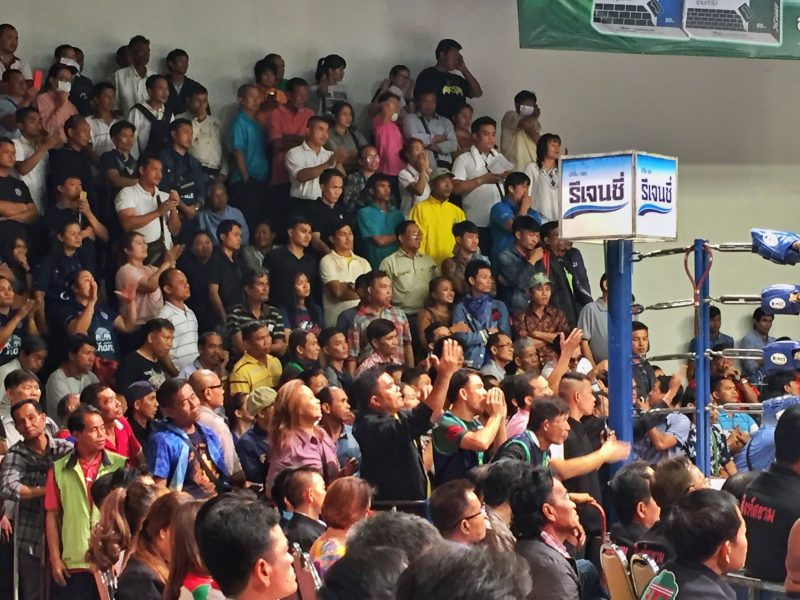Muay Thai and Gambling
- Henry
- Dec 13, 2022
- 3 min read
Updated: Mar 8
Anyone who has watched a Muay Thai fight will have noticed the particularly loud and animated crowd on one side of the ring. They are the gamblers. As the fight progresses, they get more and more excited, cheering every time their fighter lands a strike, screaming advice and even promising money to each fighter in between rounds if they win. In fact, it can be argued that they create the atmosphere at any Muay Thai venue.

Is gambling at Muay Thai events legal in Thailand?
The short answer is sometimes. Thailand has strict regulations surrounding gambling, as dictated by the Gambling Act of 1935 (B.E. 2478). The current legal framework permits only a limited range of gambling activities. These activities fall under Conditional Gambling (List B) and include lotteries, horse racing and charity events with gambling components. This also includes certain government-sanctioned events typically associated with traditional festivals or sports like Muay Thai. These betting activities are allowed only when the events are officially approved by the government. Organizers of such events must obtain a special permit from the Ministry of Interior. So, when a Muay Thai event has the obtained the correct permit, gambling is allowed. However, it is reasonable to assume that the hundreds of temple fairs, village fairs, town fairs, small fight venues and even medium sized stadiums around the country will not have obtained these permits. So how come we can see gambling being conducted so openly at these events? The simple explanation (and unspoken rule) is that face-to-face betting at fights is essentially tolerated. Gambling has been at the root of Muay Thai since its evolution into a modern combat sport in the early 20th century. And despite the shift in marketing from Muay Thai as a gambling sport towards promoting it as entertainment, gamblers remain a key part of Muay Thai fight culture. Whilst there have been periodic crackdowns on gambling at Muay Thai events, these occurrences remain relatively rare.
How does the gambling work?
At local Muay Thai events, informal betting circles will form among gamblers, who will gather at one side of the ring. Before or during the fight, gamblers agree on the terms of the bets between each other. This includes the amount of money wagered and the specific conditions of the bet (e.g., which fighter will win, the round in which the fight will end, or specific outcomes like a knockout). Gamblers use subtle hand signals to communicate their bets. This can include gestures to indicate the amount of money or the specific conditions of the bet. The system relies heavily on trust, as there are no formal contracts or guarantees. Gamblers are expected to honor their agreements. Payments are typically made in cash, either before or immediately after the fight.
In between rounds, you will often see gamblers go to the corner of the fighter they are betting on and speak to them in an effort to try and incentivize the fighter to win. This often takes the form of coaching or advice; however, it is common for a gambler to offer a fighter an extra cash reward (e.g. a share of the proceeds) if they can win.
Pre-arranged bets between competing gyms are also common. These bets will often involve multiple members of the gym putting in money, and as a result, the size of these bets can become quite large by the time of the fight.
Conclusion
In traditional Muay Thai fights in Thailand, gambling will often result in fairer matchups (since no-one will bet on an unfair fight), provide greater incentives for the fighters to try and win, and create a more exciting and electric atmosphere in the stadium. It can also lead to bigger paychecks for the fighters and more exposure in their career. Of course, there will always be corruption, just as there is in all combat sports. But in my opinion, the good outweighs the bad. Gambling is a key part of Muay Thai fight culture and hopefully is here to stay.




Comments